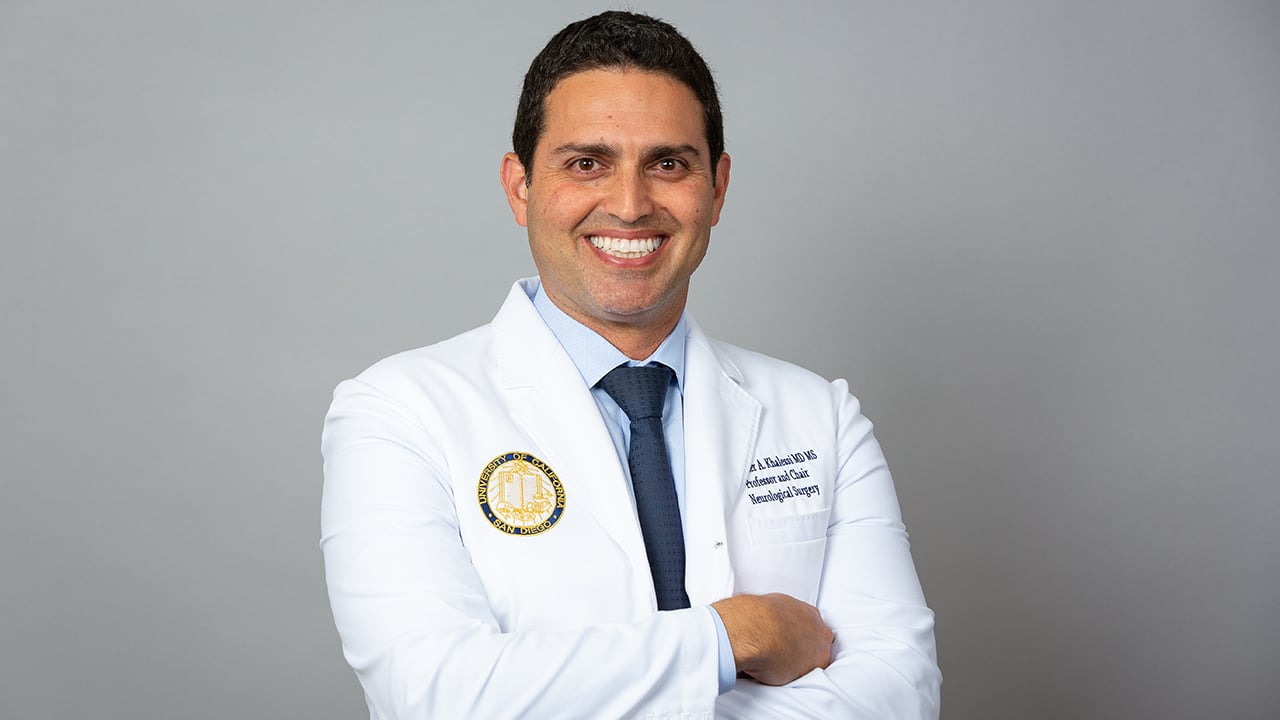Headache and Migraine
If you have migraines, cluster headaches or other headache disorders that are difficult to treat, turn to the Headache Center at UC San Diego Health.
Our board-certified neurologists have advanced training in headache medicine.
A migraine is not just a headache. It's a genetic neurological disorder and a leading cause of disability worldwide. About 12 percent of the population gets migraines, which are more common in women than men.
Untreated headaches such as migraines can affect your quality of life and ultimately lead to disability. They may get worse over time and become harder to treat.
Our team partners with experts in primary care, women's health, interventional radiology and neurosurgery, as well as spine and pain specialists.
When to See a Doctor
If you've had headaches more than once a week for three consecutive months or longer that don't respond to treatment, you should see a specialist.
Get immediate medical attention if you have headaches accompanied by any of the following:
- Stiff neck or fever
- Dizziness, unsteadiness, slurred speech, weakness, numbness, tingling
- Confusion or drowsiness
Other red flags that require immediate medical attention include headaches that:
- Always occur on the same side of the head
- Worsen when lying down
- Started while on steroids, chemotherapy, HIV medications or any other immunosuppressant medication
- Started after the age of 50 for the first time or are "the worst headache of my life"
What You Can Do Before Your First Visit
You can greatly help your physician tailor an effective treatment to your condition by keeping a detailed headache diary. Items to note and record include:
- The location where your headache starts (front of head, back of eyes, back of head, neck or temple area)
- The duration of your headache (with and without taking medication)
- Any other symptoms you have along with headaches
- Possible headache triggers, such as a particular food, smell or stress
- Number of days per week you take medications for headaches
- A list of all medications taken currently or previously, their doses and durations
Headache Treatment
We use a team approach to collaborate with you and your primary doctor, as well as other specialists as needed. Strategies we offer at UC San Diego Health include:
- Both new and long-established medications
- Neuromodulation devices approved by the FDA
- Procedures such as nerve blocks, sphenopalatine ganglion blocks, trigger point injections, Botox
- Physical therapy and biofeedback
- Acupuncture
For patients who do not respond to a single approach, we combine multiple treatment options. Healthy lifestyle choices and good mental health are always core components of our treatment plans.



